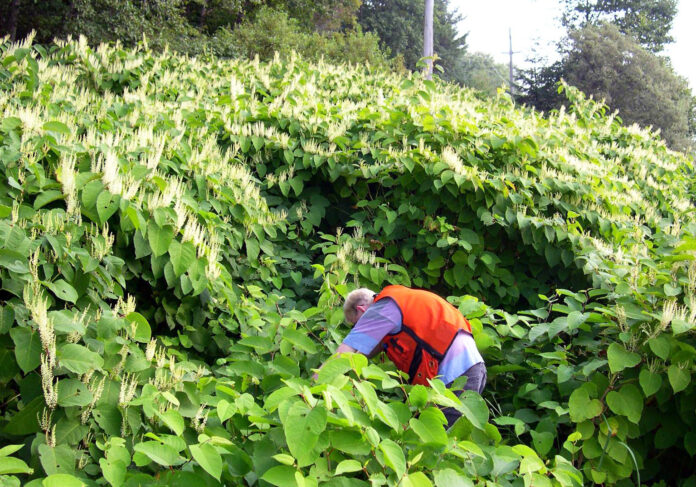
Q: I have a big back garden and parts of it have become neglected. I’ve noticed a particular type of plant that appears to have virtually spread over the entire end of the garden. I have been told that it is called ‘Japanese Knotweed’ which is extremely dangerous and invasive. It can to grow through tarmac and concrete and I have been advised to get it dealt with professionally as it is extremely difficult to remove and I might land myself in legal trouble if I don’t. Can you give me some advice?
A: Japanese Knotweed is regarded as one of the most dangerous invasive species of plant in Ireland. Its root system can spread very rapidly and can burrow up to three meters down, damaging the foundations of nearby buildings, paths and pipes. It spreads rapidly from property to property, so there is every chance that it may spread from your property to a neighbour’s.
Any person who “causes to grow” or “allows to disperse” – even through inaction – Japanese Knotweed could be guilty of an offence under Section 49 of the European Communities (Birds and Natural Habitats) Regulations. This can result in a fine of up to €500,000 or a term of imprisonment up to three years.
Clearly, a first offence for a homeowner who fails to act would not merit such a penalty, but it underlines the seriousness with which these matters can be treated.
Quite apart from any criminal conviction, it is also possible that if the Knotweed were to spread from your property to a neighbours’ property, they could sue you on the basis that there has been damage done to their property.
While there have been no cases decided in Ireland, a number of UK courts have awarded compensation based on damage done to neighbours property lands. If there was substantial damage done to the foundations of your neighbours’ property, then the figure awarded could be eye-watering.
Your home insurance company may not cover claims involving these species of plant, leaving you to pay any compensation claim.
Dealing with the issue can take some time and it generally requires the input of a specialist to ensure that the plant has been effectively removed. Failing to follow up on initial efforts to remove it will simply result in the plant growing back.
I strongly advise you to take immediate action.

